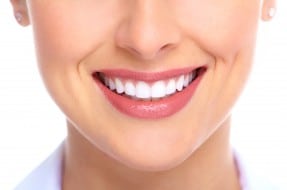Call now on0800 051 8069
Oil Pulling: the latest fad in oral hygiene?
-
This blog provides information on this alternative method of dental hygiene and explains the possible benefits.
By Ben Lees
With the holistic approach towards oral hygiene and dental care gaining ground, oil pulling is one of the latest trends to hit the world of dentistry.
What is oil pulling?
Oil pulling is actually an ancient Ayurvedic (traditional Hindu) remedy for oral health and detoxification. In more recent years, this remedy has seen a steep rise in popularity in the western world and is fast becoming one of the most popular holistic oral hygiene methods. Oil pulling involves swishing a tablespoon of oil (usually coconut oil) in your mouth for up to twenty minutes, once or twice a day and then spitting it out afterwards.
What are its benefits?
The ‘literature’ available on oil pulling explains that the process of swishing oil in your mouth lessens the amount of bacteria present in the mouth. The advocates for this method claim that as most bacteria in our mouths are single cell microorganisms with fatty membranes, when you swish the oil in your mouth, the bacteria is naturally attracted to the oil and will exit your mouth once you spit out the oil. Generally, it is claimed that oil pulling is beneficial for your health of your mouth, gums and teeth.
Benefits beyond the mouth?
The theory behind oil pulling says that your general health could also improve with oil pulling. As the oil eradicates harmful bacteria in your mouth, it can have a positive effect of existing conditions such as:
• Migraines
• Reducing inflammation associated with arthritis
• Reducing insomnia, and
• Relieving the symptoms of sinus congestion.
Do dentists recommend the technique of oil pulling?
Whilst there has been no official word from The General Dental Council (GDC), the regulatory watchdog for dental practices and practitioners in the UK in respect of oil pulling, we would predict that the large majority of UK dentists would advise that oil-pulling routines should not replace routine dental visits and traditional at-home oral hygiene.
When carrying out research for this article, I was only able to locate a handful of published clinical trials that have looked into the benefits of oil pulling. I predict that until more research and larger scale studies are carried out, traditional UK dentist will be reluctant to recommend this alternative method.
With holistic therapies in general, we often see ‘trends’ that come and go very quickly, so it will be interesting to see whether oil pulling will gain more ground and become a permeant fixture in the nations’ oral hygiene routine. Until further scientific verification of the benefits of oil pulling is established and its long terms effects on oral and overall health are recognised, I think I will be observing this trend from a distance.







